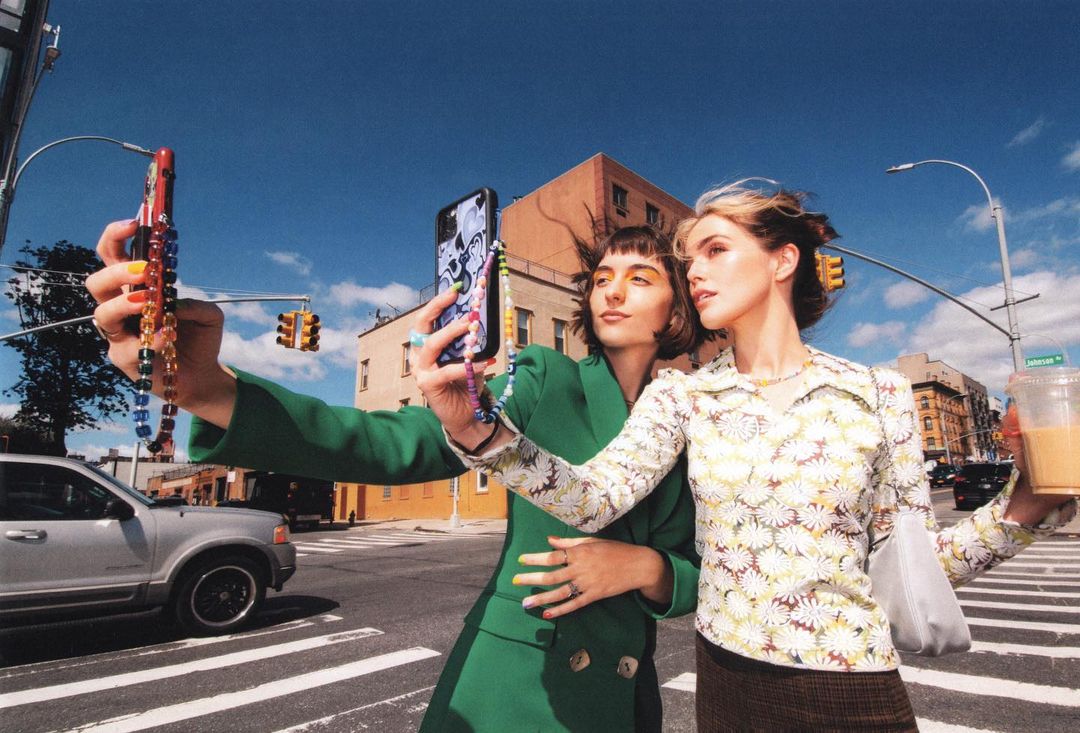Digitally altered images have long been a staple of social media, and their contribution to the ongoing self-image crisis is a subject of many debates. Especially when it comes to the fashion and beauty industry, brands and influencers often go the extra mile to retouch photos to the point they are unrecognizable.
Yesterday, the French government kicked off discussions around a bill that would put strict regulations on influencers, including making it mandatory for them to label filtered or doctored images. The new law would ban influencers from promoting cosmetic surgery, cryptocurrency and gambling as part of paid partnerships. The bill covers all French influencers and those influencers who live abroad but earn money from sponsoring products sold in France.
On Friday, the country’s finance minister Bruno Le Marie said the measures would help “limit the destructive psychological effects of these practices on internauts’ esteem” and that there would be a “zero-tolerance approach” to anyone who does not respect the rules. According to the bill, breaches of the new law will result in up to two years of jail time and €30,000 in fines. Influencers violating the law will also not be allowed to use social media or continue their careers.
France wouldn’t be the first country to introduce such a law in effect, Norway did the same back in 2021, after which Denmark followed suit. Even the French government themselves have introduced similar laws in the past. In 2017, they made it mandatory to label digitally altered photos of models. And other countries have also tried a lot to limit Instagram from showing manipulated images on explore tabs and feeds.
But how effective is this strategy? Is simply labelling retouched photos the solution to the crumbling self-esteem of our younger generations? The answer seems a bit more complicated than a simple yes. There is already substantial evidence that social media and photo manipulation are associated with a higher risk of eating disorders. Teens who spend most of their time on social media could be far more likely to develop self-image issues, anxiety and depression.
There are also studies that prove that reducing the use of social media can significantly improve body image. More and more young adults these days seem to be ditching social media altogether for a stress-free life. But children who are only just getting familiar with the world of social media are an issue.
Some experts suggest enforcing stricter age limits on media platforms might help. Ideally, Instagram is open to users 13 and above, but the app has failed to block children under 13 from accessing the platform. Despite introducing certain measures to temporarily avoid backlash from the general public, the same social media apps seemingly continue to promote harmful features to their users. TikTok’s controversial AI filters have been at the centre of controversy for months now.
I am old enough and tough enough that filters don’t have an impact on me. My face tells the story of my life and I know its value; I can (mostly) look at who I am with love and acceptance. But if I had had access to Tiktok’s Bold Glamour as a kid, I would have been destroyed. pic.twitter.com/USjFcLJkoh
— Rebecca Seal (@RebeccaSeal) March 27, 2023
The company also recently introduced some measures of its own, limiting screen time for minors to 60 minutes per day. The time limit is fairly easy to override for older minors, but TikTok linked to research showing that “being more aware of how we spend our time can help us be more intentional about the decisions we make,” Cormac Keenan, TikTok head of trust and safety, wrote in a statement. Even so, since it’s easy to turn the feature off – it might not be as impactful as they intend it to be.
Even though some young adults seem to be outgrowing these platforms, the ‘iPad kids’ we made fun of 10 years ago are now rising ‘social media teens’ – front and centre in a toxic environment. Ultimately, in the long run, government interventions won’t change much. We won’t be able to break the cycle unless we challenge society’s ideals of beauty on a personal level.





